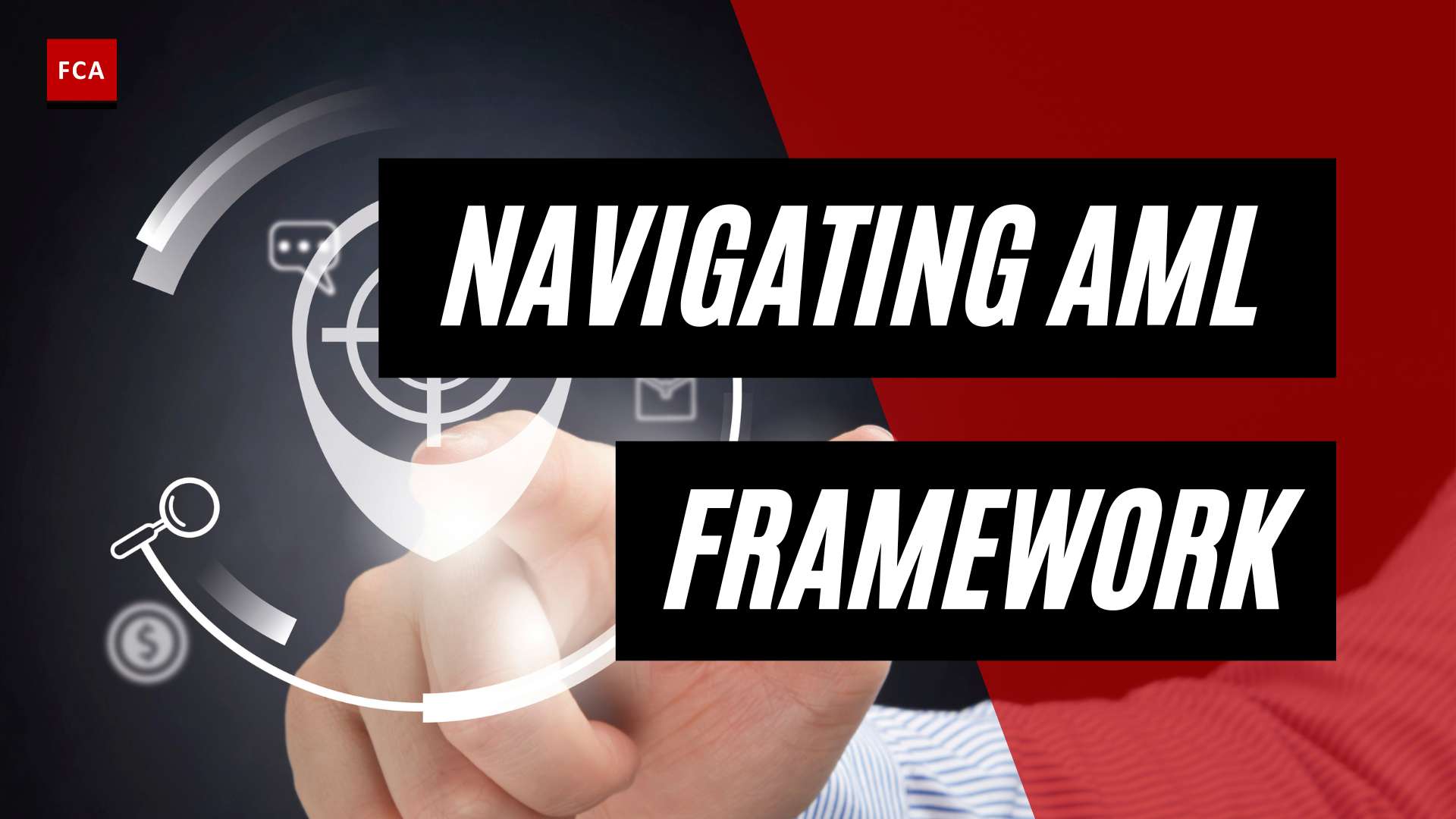The Intersection of Cryptocurrency and AML Regulations
In the world of digital currencies, the intersection between cryptocurrency and Anti-Money Laundering (AML) regulations has become increasingly important. Understanding how AML regulations apply to cryptocurrency is crucial for promoting transparency, mitigating financial crime risks, and ensuring compliance. This section will provide an overview of AML regulations and highlight the challenges that cryptocurrency presents within this context.
Understanding Anti-Money Laundering (AML) Regulations
Anti-Money Laundering (AML) regulations are a set of laws and regulations that aim to prevent individuals or entities from disguising the origins of illicit funds through legitimate financial channels. The goal is to detect and deter money laundering, terrorist financing, and other financial crimes.
AML regulations typically require financial institutions, such as banks and money services businesses, to implement robust systems and controls to identify and report suspicious activities. These regulations are designed to create a paper trail, making it difficult for criminals to legitimize their ill-gotten gains.
Overview of Cryptocurrency and its Challenges in AML
Cryptocurrency, on the other hand, is a digital or virtual form of currency that relies on encryption techniques to secure transactions and regulate the creation of additional units. It operates independently of any central authority, making it decentralized and often anonymous or pseudonymous.
The decentralized nature and pseudonymous features of cryptocurrency present challenges for AML efforts. Criminals can exploit these characteristics to launder money and finance illicit activities while remaining relatively anonymous. The ability to transact across borders without intermediaries also adds complexity to AML monitoring and enforcement.
To address these challenges, regulatory bodies and jurisdictions around the world have been developing specific AML frameworks and guidelines tailored to the unique characteristics of cryptocurrency. These frameworks aim to promote transparency, enhance customer due diligence, and establish reporting mechanisms within the cryptocurrency ecosystem.
Understanding the evolving landscape of AML regulations for cryptocurrency is crucial for businesses operating in the digital asset space. Compliance with these regulations is not only a legal requirement but also crucial for maintaining trust and integrity within the industry. By implementing effective AML programs, collaborating with regulatory authorities, and staying updated on the latest regulatory developments, businesses can navigate the intersection of cryptocurrency and AML regulations with confidence.
For more information on cryptocurrency AML compliance, including transaction monitoring and best practices, refer to our articles on cryptocurrency anti-money laundering, cryptocurrency compliance, and cryptocurrency transaction monitoring.
Compliance Requirements for Cryptocurrency Businesses
For cryptocurrency businesses, compliance with Anti-Money Laundering (AML) regulations is of utmost importance. These regulations are designed to prevent illegal activities, such as money laundering and terrorist financing, within the cryptocurrency industry. In order to maintain compliance, cryptocurrency businesses must adhere to various requirements, including registration and licensing obligations, as well as implementing robust Know Your Customer (KYC) and Customer Due Diligence (CDD) processes, and conducting transaction monitoring and reporting.
Registration and Licensing Obligations
Cryptocurrency businesses are often required to register with relevant regulatory authorities and obtain the necessary licenses to operate legally. The specific registration and licensing requirements may vary depending on the jurisdiction in which the business operates. It is essential for cryptocurrency businesses to thoroughly research and understand the regulatory landscape in their respective regions to ensure compliance with these obligations.
Know Your Customer (KYC) and Customer Due Diligence (CDD)
KYC and CDD are critical components of AML compliance for cryptocurrency businesses. KYC procedures involve verifying and documenting the identity of customers, while CDD processes require a deeper understanding of the customer’s background and risk profile. By implementing robust KYC and CDD measures, cryptocurrency businesses can mitigate the risk of facilitating illicit activities and ensure that they are dealing with legitimate customers.
These measures typically involve collecting and verifying customer information, such as identification documents, proof of address, and the purpose and nature of the customer’s cryptocurrency transactions. The level of due diligence required may depend on factors such as the transaction size, the customer’s risk profile, and the jurisdictional requirements.
Transaction Monitoring and Reporting
Cryptocurrency businesses must establish effective transaction monitoring systems to detect and report suspicious activities. By monitoring transactions, businesses can identify patterns or behaviors that may indicate money laundering or other illicit activities. Suspicious transactions must be reported to the appropriate regulatory authorities in accordance with the jurisdiction’s reporting requirements.
Additionally, cryptocurrency businesses should have protocols in place for filing reports related to large transactions, transactions involving high-risk jurisdictions, and any other transactions that raise concerns. These reports help regulatory authorities track and investigate potential money laundering activities within the cryptocurrency industry.
To ensure compliance with transaction monitoring and reporting obligations, cryptocurrency businesses should consider utilizing specialized software solutions designed for cryptocurrency AML compliance. These tools can assist in automating the monitoring process and generating accurate reports. For more information on cryptocurrency AML software, refer to our article on cryptocurrency AML software.
By adhering to the compliance requirements outlined above, cryptocurrency businesses can contribute to the global efforts to combat money laundering and illicit activities. It is crucial for businesses to stay updated on the evolving AML regulations specific to the cryptocurrency industry and adapt their compliance practices accordingly. Regular training and education for employees is also essential in maintaining a strong compliance culture within the organization. For more information on best practices for AML compliance in the cryptocurrency industry, refer to our article on crypto AML best practices.
Key AML Regulations for Cryptocurrency
As the intersection of cryptocurrency and anti-money laundering (AML) regulations continues to evolve, it is essential for cryptocurrency businesses to stay informed about the key AML regulations governing their operations. In this section, we will explore three prominent AML regulations that have a significant impact on the cryptocurrency industry: the Financial Action Task Force (FATF) Recommendations, the Bank Secrecy Act (BSA) and FinCEN Guidance, and the European Union’s Fifth Anti-Money Laundering Directive (5AMLD).
Financial Action Task Force (FATF) Recommendations
The FATF is an intergovernmental organization that sets global standards for combating money laundering and terrorist financing. In June 2019, the FATF issued a series of recommendations specifically addressing the challenges posed by cryptocurrencies. These recommendations require countries to implement licensing and registration requirements for cryptocurrency businesses, enforce know your customer (KYC) procedures, and ensure the monitoring and reporting of suspicious transactions.
The FATF’s recommendations also emphasize the importance of effective risk assessment, cooperation between authorities, and the exchange of information among countries. Cryptocurrency businesses are expected to comply with these recommendations to mitigate the risk of money laundering and terrorist financing. For more information on cryptocurrency compliance, visit our article on cryptocurrency compliance.
The Bank Secrecy Act (BSA) and FinCEN Guidance
In the United States, the Bank Secrecy Act (BSA) serves as the foundation for AML regulations. Under the BSA, financial institutions, including cryptocurrency businesses, are required to implement comprehensive AML programs to prevent money laundering and other illicit activities. These programs include customer due diligence (CDD), transaction monitoring, and reporting suspicious activities.
The Financial Crimes Enforcement Network (FinCEN), a bureau of the U.S. Department of the Treasury, provides guidance to cryptocurrency businesses on complying with the BSA. FinCEN’s guidance clarifies the obligations of cryptocurrency exchanges and administrators, highlighting the importance of implementing effective AML controls and complying with reporting requirements. Cryptocurrency businesses should familiarize themselves with the BSA and FinCEN guidance to ensure compliance. For more information on transaction monitoring and reporting, refer to our article on cryptocurrency transaction monitoring.
European Union’s Fifth Anti-Money Laundering Directive (5AMLD)
The European Union’s Fifth Anti-Money Laundering Directive (5AMLD) is a comprehensive regulatory framework that strengthens AML measures across the EU. 5AMLD extends the scope of AML regulations to include virtual currency exchanges and custodian wallet providers. These entities are now required to conduct customer due diligence (CDD) procedures, register with relevant authorities, and report suspicious activities.
Furthermore, 5AMLD introduces stricter requirements for identifying beneficial owners and enhances cooperation among EU member states. It also imposes obligations on member states to maintain centralized registers of beneficial ownership information. Cryptocurrency businesses operating within the EU must adhere to the provisions outlined in 5AMLD to ensure compliance. To learn more about AML software and tools, read our article on cryptocurrency AML software.
By familiarizing themselves with the FATF Recommendations, the BSA and FinCEN Guidance, and the European Union’s 5AMLD, cryptocurrency businesses can navigate the complex regulatory landscape and implement robust AML programs. Compliance with these key AML regulations is crucial not only for mitigating the risk of money laundering and illicit activities but also for building trust and credibility within the cryptocurrency industry. For guidance on developing effective AML policies and guidelines, refer to our article on cryptocurrency AML policies.
Emerging Trends and Challenges
As the intersection of cryptocurrency and anti-money laundering (AML) regulations continues to evolve, new trends and challenges emerge for businesses operating in this space. Understanding and addressing these emerging trends is crucial to ensure effective compliance with AML regulations. In this section, we will explore three key areas of concern: dealing with anonymity and pseudonymity, addressing cross-border transactions, and navigating regulatory updates in an evolving landscape.
Dealing with Anonymity and Pseudonymity
One of the unique aspects of cryptocurrency is the potential for anonymity and pseudonymity. While this feature can offer privacy benefits to users, it also poses challenges for AML compliance. The ability to conduct transactions without disclosing personal information makes it difficult to identify and track individuals involved in potentially illicit activities.
To mitigate this challenge, businesses in the cryptocurrency space must implement robust identity verification procedures, such as cryptocurrency AML screening, KYC (Know Your Customer) processes, and transaction monitoring tools. These measures help to establish the identities of individuals involved in cryptocurrency transactions and detect suspicious activities that may be indicative of money laundering or other financial crimes.
Addressing Cross-Border Transactions
Cryptocurrencies operate in a global and decentralized environment, enabling cross-border transactions without the need for traditional financial intermediaries. While this offers convenience and efficiency, it also creates challenges for AML compliance. The decentralized nature of cryptocurrencies can make it difficult to trace the origin and destination of funds, increasing the risk of money laundering and illicit financial activities.
To address this challenge, businesses in the cryptocurrency space must implement enhanced due diligence measures for cross-border transactions. This may include monitoring transactions that involve high-risk jurisdictions, implementing cryptocurrency AML policies and AML guidelines specific to cross-border activities, and leveraging technology such as blockchain analytics to track and trace transactions across borders.
Navigating Regulatory Updates and Evolving Landscape
Regulatory frameworks surrounding cryptocurrencies and AML continue to evolve, as authorities strive to keep pace with the rapidly changing landscape. Businesses operating in the cryptocurrency space must stay informed about regulatory updates, adapt their AML programs accordingly, and ensure compliance with the latest requirements.
To navigate this dynamic landscape, businesses should establish strong relationships with regulatory authorities and industry associations. Collaboration and open communication with these entities can provide valuable insights into emerging regulations and best practices. Ongoing training and education for employees on the latest regulatory developments are also essential to maintain a culture of compliance.
By addressing the challenges posed by anonymity and pseudonymity, cross-border transactions, and regulatory updates, businesses operating in the cryptocurrency space can strengthen their AML compliance efforts. Implementing robust AML programs, collaborating with regulatory authorities, and staying informed about the evolving landscape are key components of effective AML compliance in the cryptocurrency industry. For more information on best practices, be sure to explore our article on crypto AML best practices.
Best Practices for AML Compliance in Cryptocurrency
To ensure effective Anti-Money Laundering (AML) compliance in the cryptocurrency industry, it is crucial for businesses to implement robust AML programs, collaborate with regulatory authorities, and prioritize ongoing training and education.
Implementing Robust AML Programs
Cryptocurrency businesses should establish comprehensive AML programs that align with regulatory requirements and industry best practices. These programs should include the following key elements:
-
AML Policies and Procedures: Develop and document clear AML policies and procedures that outline the steps to be taken for customer onboarding, transaction monitoring, suspicious activity reporting, and record-keeping. These policies should be regularly reviewed and updated to reflect changes in regulations and emerging risks.
-
Risk Assessment: Conduct a thorough risk assessment of the business to identify and evaluate potential money laundering and terrorist financing risks. This assessment should consider factors such as customer types, transaction volumes, geographic locations, and the use of privacy-enhancing technologies.
-
Customer Due Diligence (CDD): Implement robust Know Your Customer (KYC) procedures to verify the identity of customers and assess the risks associated with their activities. This may involve collecting and verifying customer information, conducting enhanced due diligence for high-risk customers, and ongoing monitoring of customer transactions.
-
Transaction Monitoring: Establish a robust system for monitoring and analyzing customer transactions to detect and report suspicious activity. This may involve leveraging automated transaction monitoring tools and technologies that can flag unusual patterns, high-value transactions, and potential red flags.
Collaboration with Regulatory Authorities
To stay compliant with AML regulations, cryptocurrency businesses should actively collaborate with regulatory authorities. This collaboration can involve the following actions:
-
Reporting Suspicious Activity: Establish mechanisms to promptly report suspicious transactions to the appropriate regulatory authorities as required by law. This includes filing suspicious activity reports (SARs) or other relevant reports to the designated financial intelligence units (FIUs).
-
Engagement with Regulatory Agencies: Maintain open lines of communication with regulatory authorities to stay informed about changes in AML regulations, seek clarifications on compliance requirements, and participate in industry consultations. This proactive engagement helps businesses adapt to evolving regulatory expectations.
-
Information Sharing: Participate in information-sharing initiatives and industry collaborations aimed at combating money laundering and terrorist financing. Sharing relevant data and insights with other businesses and regulatory bodies can enhance the collective ability to identify and prevent illicit activities.
Ongoing Training and Education
Continuous training and education are vital components of effective AML compliance in the cryptocurrency industry. Businesses should prioritize the following activities:
-
Staff Training: Provide comprehensive AML training programs to employees at all levels of the organization. This training should cover topics such as AML regulations, red flags for suspicious activity, customer due diligence, and reporting obligations. Regular refresher training sessions should be conducted to reinforce knowledge and keep employees up to date with evolving risks and best practices.
-
Awareness Programs: Raise awareness among employees about the importance of AML compliance and the role they play in detecting and preventing money laundering and terrorist financing. Encourage a culture of vigilance and reporting within the organization to foster a strong compliance culture.
-
External Education: Stay informed about industry developments, emerging trends, and regulatory updates by participating in relevant conferences, seminars, and webinars. Engage with industry associations and organizations that offer resources and guidance on AML compliance in the cryptocurrency space.
By implementing robust AML programs, collaborating with regulatory authorities, and prioritizing ongoing training and education, businesses in the cryptocurrency industry can navigate the complex landscape of AML regulations and contribute to a more secure and compliant ecosystem. For more information on AML compliance in the cryptocurrency sector, explore our articles on cryptocurrency anti-money laundering, cryptocurrency compliance, and cryptocurrency transaction monitoring.









